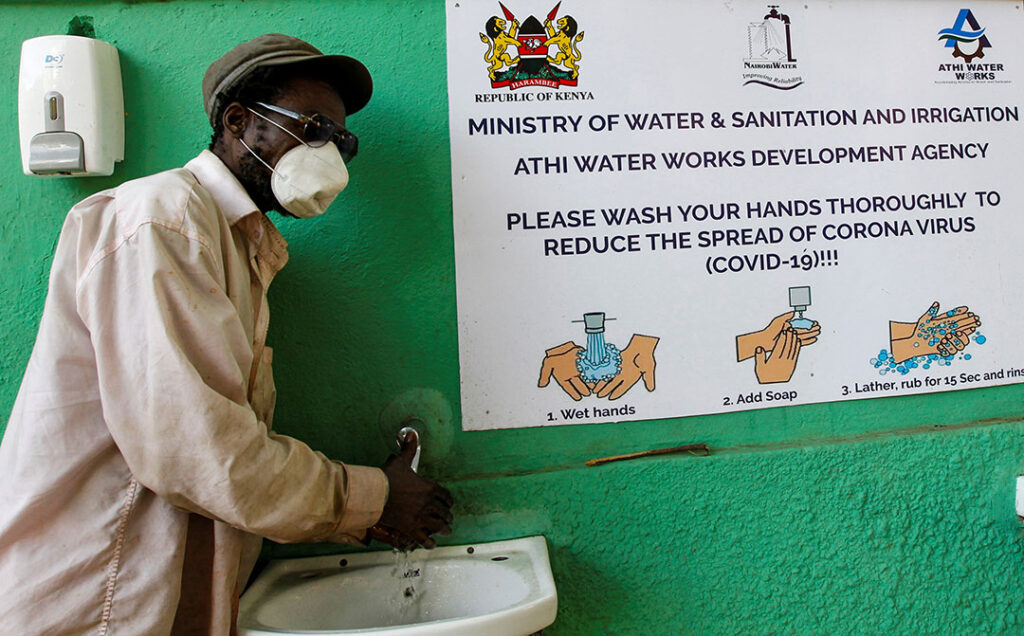ADF STAFF
Misinformation about COVID-19 is preventing Kenyans from doing all they can to contain the virus’s deadly spread.
A recent study of people living in 20 African nations, including Kenya, showed that more than 58% believed that the disease can be avoided by drinking lemon juice and vitamin C, almost 54% thought hot climates can prevent the virus from spreading, and about 20% clung to the notion that dark-skinned people can’t get infected. None of this is true.
The study, highlighted in a story by The Standard, a Kenyan newspaper, also showed that 62% believed the disease caused by a new coronavirus would affect their country, but only 44% considered it a personal threat. As of mid-July, COVID-19 had sickened almost 10,800 Kenyans and killed nearly 200, according to the Africa Centres for Disease Control and Prevention.
Kenyan activist Nelson Kwaje, 28, is among those working to fight the spread of false information about COVID-19.
Kwaje, who leads a digital team at #defyhatenow, an organization that also mitigates hate speech on social media, recently told Al-Jazeera that he has had to debunk the ideas that consuming boiled onions, drinking tea without sugar or drinking alcohol could keep people virus-free.
“There is also misinformation related to government directives and public announcements,” he said. “This could be as simple as people not understanding it or misinterpretation of the directive.”
Nairobi Gov. Mike Sonko likely contributed to false alcohol-related information when he did a television interview while delivering food to the poor.
“We are giving some small bottles of Hennessy [cognac] in the food pack, which we should give to our people,” he said in the widely circulated clip. “From the research conducted by the World Health Organization [WHO], it has been revealed that alcohol plays a major role in killing the coronavirus or any sort of virus.”
When Citizen TV in Kenya tweeted the interview, the station noted that the WHO did not endorse drinking alcohol as a COVID-19 prevention tool. The organization does urge people to use alcohol-based hand sanitizer — or regularly wash their hands with soap and water.
Kwaje said his organization tries not to “give misinformation more views.”
“We want to fact-check information that is harmful, but we’re also training users online to detect misinformation and be critical thinkers and question things,” he said.
Maureen Akinyi does her best to battle misinformation by volunteering with Kenya Red Cross. The 33-year-old, who owns a small clothing store, has volunteered with the organization for seven years. After the first COVID-19 case was confirmed in Kenya on March 12, she started walking Nairobi’s busy streets to demonstrate hand-washing techniques and explain social distancing.
“I love giving back to my community,” she told Al-Jazeera. “Financially, I cannot, but I can give my services.”
Writing in Kenya’s Daily Nation newspaper, Timothy Olweny, director of Evans Sunrise Medical Centre in Nakuru, said that “flattening the curve of misinformation” is as important as “flattening the contagion curve” of COVID-19 infections.
He said people need to take COVID-19 information with a “dose of skepticism, critically pausing to check the source, author and then assessing the accuracy of the information prior to forwarding it to others.”
He called on social media platforms to prohibit content that defies “authoritative public health information.”

